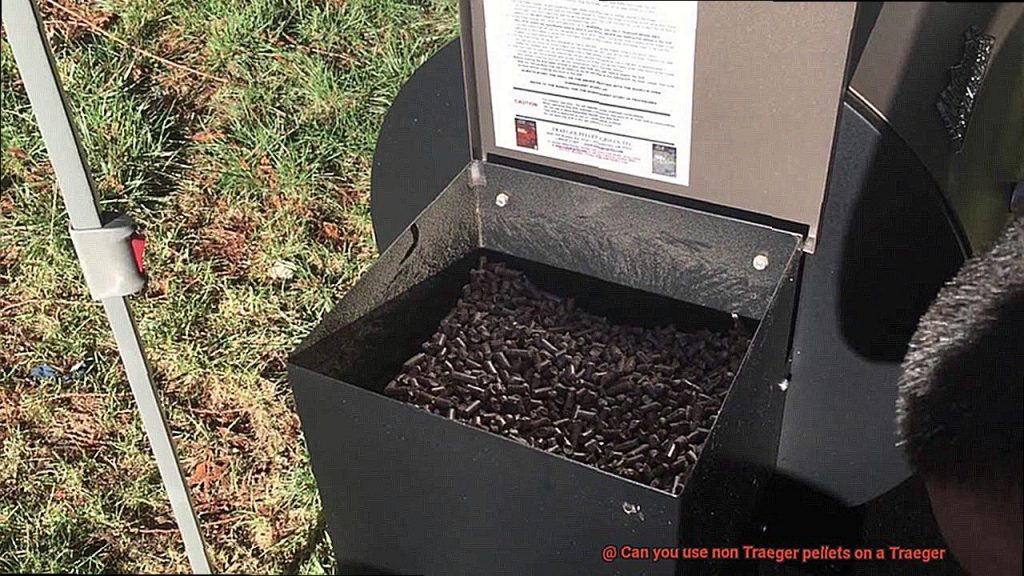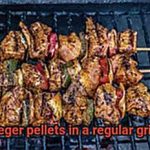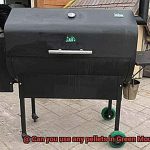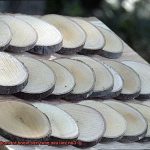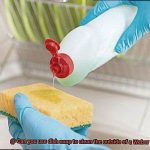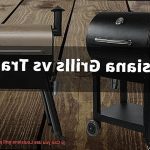Are you a grilling aficionado who loves to experiment with different pellets? If you own a Traeger grill, you may have wondered whether non-Traeger pellets can be used on it. But the answer isn’t as simple as yes or no. Some grillers swear by Traeger pellets, while others claim that non-Traeger pellets are just as good, if not better. So who’s right? Let’s explore the pros and cons of using non-Traeger pellets on your Traeger grill together.
First off, let’s talk about what makes Traeger pellets unique. These pellets are made from 100% pure hardwood without any fillers, binding agents or additives. They come in an array of flavors, ranging from classic hickory to bold mesquite, and they’re designed to give your food a smoky, wood-fired taste that’s hard to beat.
However, there’s no denying that Traeger pellets can be pricey compared to non-Traeger options. Some grillers feel that the brand name is just an excuse to charge more. Conversely, non-Traeger pellets tend to be more affordable and offer a wider variety of flavors.
But here’s the million-dollar question: Is it safe to use non-Traeger pellets on your Traeger grill? Some folks worry that doing so could damage their grill or negatively impact their food’s taste quality. Others argue that non-Traeger pellets are just as safe and effective as their branded counterparts.
So what’s the verdict? Can you use non-Traeger pellets on a Traeger grill? The answer is yes – but with some caveats. In this post, we’ll take a deep dive into the pros and cons of using non-Traeger pellets on your trusty Traeger grill so that you can make an informed decision for yourself.
Contents [show]
What are Traeger Pellets?
These hardwood pellets are a perfect match for Traeger grills, made from compressed sawdust without any additives or fillers. This means that each pellet burns evenly, resulting in a consistent flavor in every bite.
One of the unique selling points of Traeger pellets is their commitment to sustainable forestry practices. The company sources their wood from responsibly managed forests and mills, ensuring that their products taste great while also having a positive impact on the environment. This ethical approach makes Traeger pellets an excellent choice for environmentally conscious consumers who want to make a difference.
Traeger pellets come in a variety of flavors, including hickory, mesquite, apple, cherry, and pecan. This versatility allows grill enthusiasts to experiment with different flavors and find the perfect pellet for their grilling needs, whether it’s savory or sweet.
Another reason why Traeger pellets stand out is their compatibility with other pellet grills and smokers. However, it is important to note that using non-Traeger pellets in a Traeger grill may void the warranty and could potentially damage the grill. Always check the manufacturer’s guidelines and avoid using pellets that contain additives or fillers.
Can You Use Non-Traeger Pellets on a Traeger Grill?
You may be wondering whether it’s okay to use non-Traeger pellets on your grill. The short answer is yes, but before you do, there are some important things to consider.
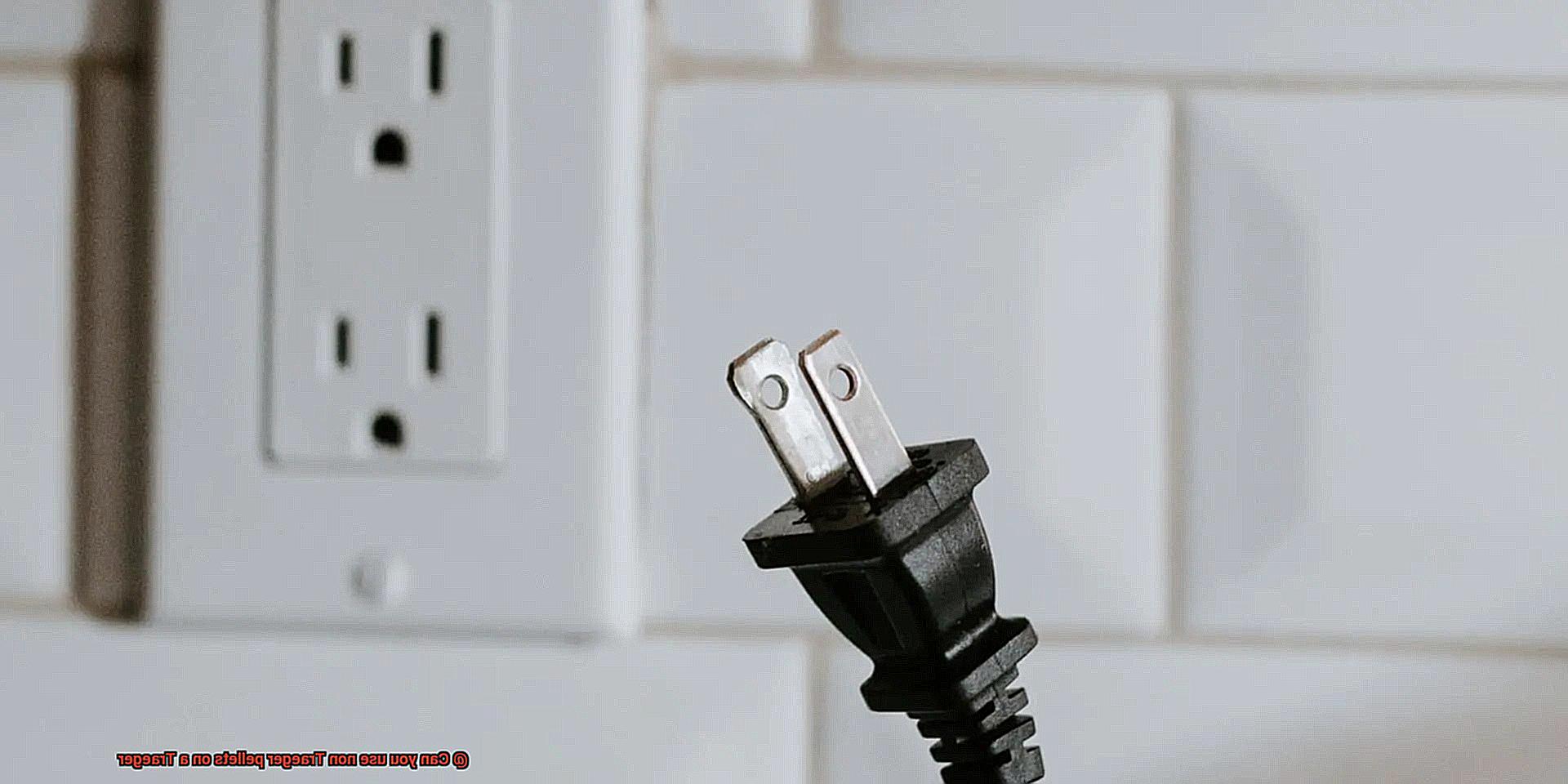
Firstly, it’s essential to note that Traeger grills are designed to work best with Traeger wood pellets. These pellets are made from 100% hardwood and are specifically formulated to provide the best possible flavor and cooking performance. Using non-Traeger pellets may affect the taste of your food and even affect the warranty of your Traeger grill as it is tested only with Traeger wood pellets.
However, many people still choose to use non-Traeger pellets on their Traeger grills. If you do decide to try this out, here are some things to keep in mind:
- Choose a high-quality pellet from a reputable brand. This will ensure that you get the best possible flavor and cooking performance.
- Not all types of non-Traeger pellets will work well on a Traeger grill. Pellets that are too soft or contain too much dust may cause issues with your grill’s auger and firepot.
- Using non-Traeger pellets may void your warranty. So, if you’re still under warranty, it’s best to stick with Traeger wood pellets.
Advantages of Using Non-Traeger Pellets on a Traeger Grill
Look no further than non-Traeger pellets. While many assume that only Traeger-branded pellets can be used, there are actually several advantages to branching out.
The first advantage is cost. Traeger pellets are often marketed as a premium product and come with a higher price point. Non-Traeger pellets, on the other hand, are usually less expensive without sacrificing quality. For those grilling on a budget, non-Traeger pellets can be a great way to save some cash.
But the benefits don’t stop there. Non-Traeger pellets come in a wider variety of flavors and blends than Traeger pellets. While Traeger does offer an impressive range of flavors, non-Traeger brands may have unique blends or flavor profiles that Traeger does not offer. This opens up a whole world of experimentation for grillers who want to try something new and find their perfect flavor combination.
Another advantage is availability. While Traeger has an extensive distribution network, some areas may not have easy access to Traeger-branded pellets. By using non-Traeger pellets, grillers can find options at local stores or online retailers. No more going out of your way to get your hands on some pellets.
Last but not least, non-Traeger pellets may be the ethical and sustainable choice for some grillers. Traeger uses virgin wood in their pellets which means trees are cut down specifically for pellet production. Non-Traeger pellet brands may use recycled wood or other sustainable materials for their product. For those who prioritize environmental responsibility, non-Traeger pellets may be the way to go.
Disadvantages of Using Non-Traeger Pellets on a Traeger Grill
You may be tempted to experiment with non-Traeger pellets on your Traeger grill, but beware of the potential disadvantages that come with it. Let’s explore why using non-Traeger pellets can be a risky move.
Firstly, non-Traeger pellets may not produce the same high-quality smoke as Traeger pellets. Smoke is a critical component in creating mouth-watering, tender meats. Using inferior pellets may result in less flavorful and tough meat, which defeats the purpose of investing in a high-quality grill like the Traeger.
Another disadvantage is that non-Traeger pellets may not burn as cleanly as Traeger pellets. This can lead to an excessive buildup of ash and soot in your grill, affecting its performance and even posing safety hazards. Who wants to deal with a dirty grill that doesn’t perform optimally?
Moreover, Traeger grills are designed to work specifically with Traeger pellets. Using non-Traeger pellets may void your grill’s warranty and cause damage to its internal components, such as the auger. Replacing or repairing these parts can be costly, leaving you with an empty wallet and a broken grill.
In summary, while it may seem appealing to use non-Traeger pellets for cost savings or unique flavors, the potential risks outweigh the benefits. Stick with Traeger pellets to ensure optimal performance and longevity of your grill. Don’t compromise on flavor or safety just to experiment with different pellets.
To recap, here are the disadvantages of using non-Traeger pellets on a Traeger grill:
- Less flavorful and less tender meats due to lower quality smoke production
- Increased buildup of ash and soot, affecting performance and posing safety hazards
- Risk of voiding warranty and damaging internal components, resulting in costly repairs or replacements
Factors to Consider When Choosing Non-Traeger Pellets for Your Traeger Grill
Before diving in, there are a few key factors to consider to ensure that you get the most out of your grill and your food.
Firstly, the composition of the pellets is critical. Traeger grills are designed to use wood pellets made of 100% natural hardwood, free from fillers or binders. This is because the smoke and flavors produced by the wood are essential for enhancing the taste of your food. Look for high-quality brands like Lumber Jack, CookinPellets, and BBQrs Delight that offer 100% natural hardwood pellets.
The type of wood used in the pellets is equally important as different types of wood produce distinct flavors and aromas. For example, hickory wood pellets will produce a powerful and smoky flavor, while fruitwood pellets like apple or cherry will offer a sweeter and milder taste. Choose pellets that complement your preferred flavor profile.
Size and shape also play a crucial role in ensuring the proper functioning of your grill. Traeger grills require small, cylindrical pellets that measure about 1/4 inch in diameter and 1 inch long. Larger or irregularly shaped pellets can cause issues with your grill’s auger system, which feeds the pellets into the firepot.
Finally, consider the price and availability of non-Traeger pellets. While Traeger brand pellets may be more expensive than other brands, they are widely available at most home improvement stores and online retailers. Non-Traeger pellets may be less expensive but may be harder to find or may require ordering online.
How to Ensure Quality When Using Non-Traeger Pellets on a Traeger Grill
Using non-Traeger pellets on a Traeger grill can be a great way to diversify your grilling experience, but it’s important to ensure that you’re still getting high-quality results. Here are five tips to help ensure the quality of your food:
Check the Quality of the Pellets
The quality of the pellets you use is crucial to producing great results. When using non-Traeger pellets, make sure to check that they are made from 100% hardwood, without any fillers or additives. This will ensure that they burn cleanly and provide the best flavor for your food.
Store Your Pellets Properly
Proper storage is key to maintaining the quality of your pellets. Make sure to store them in a cool, dry place, away from moisture and direct sunlight. This will help prevent them from absorbing moisture and losing their flavor, which can impact the taste of your food.
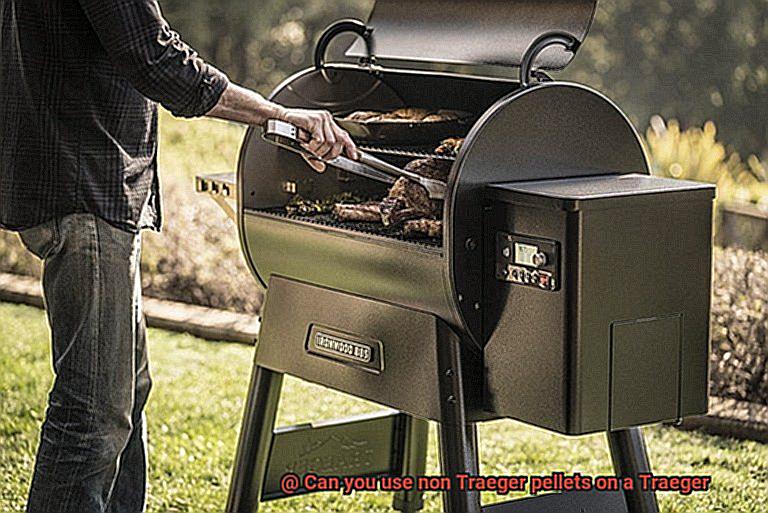
Preheat Your Grill
Before adding your food, preheat your grill to the desired temperature to ensure that the pellets burn cleanly and evenly. This will help produce high-quality results and prevent any issues with uneven heating.
Monitor the Smoke
When using non-Traeger pellets, it’s important to keep an eye on the smoke coming from your grill. If you notice excessive smoke or a strange smell, it could be an indication that the pellets are of low quality or contain additives. This can impact the flavor of your food and may even be harmful to your health.
Choose the Right Size Pellets
Using the correct size pellets is crucial to preventing issues with your grill’s auger and hopper. Make sure to choose pellets that are the correct size for your Traeger grill to ensure even heating and prevent any potential damage to your grill.
To further ensure quality when using non-Traeger pellets, consider doing some research before purchasing them. Look for brands that have been tested and approved by other Traeger users and avoid pellets that contain additives or fillers. Proper storage and monitoring the temperature of your grill can also help ensure that you get the best possible results when using non-Traeger pellets.
Tips for Getting the Best Performance from Your Traeger Grill with Non-Traeger Pellets
If you’re looking to mix things up with your Traeger grill and try out non-Traeger pellets, there are a few tips you should follow to ensure the best performance. Here are five sub-sections to help guide you through the process.
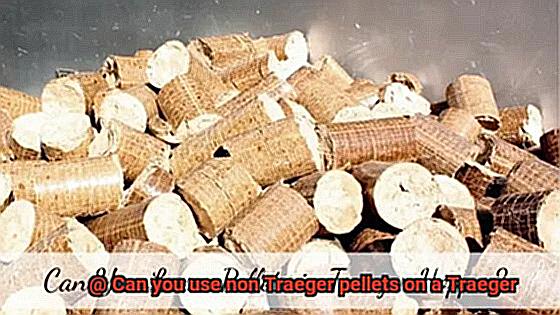
Choose High-Quality, 100% Hardwood Pellets
The quality of your pellets can make all the difference in achieving the desired flavor and consistent heat production. Choosing pellets made from hardwoods like oak, hickory, or maple will ensure a clean burn and efficient smoke production.
Preheat Your Grill
Before adding your pellets, be sure to preheat your Traeger grill to ensure that it reaches the desired temperature quickly and evenly. This will help your grill maintain a consistent cooking temperature throughout the process.
Monitor Temperature Gauge
Temperature control is critical in ensuring that your food is cooked correctly. Non-Traeger pellets may burn at a slightly different rate than Traeger pellets, so it’s important to keep an eye on the temperature gauge throughout the cooking process to maintain a steady cooking temperature.
Keep Your Grill Clean
Regular cleaning of your grill grates and fire pot is essential in ensuring optimal grill performance. This will prevent any buildup of ash or debris that could affect the flavor and efficiency of your grill.
Start Small and Gradually Increase
When using non-Traeger pellets for the first time, start with a small amount and gradually increase as you become more familiar with their performance. This approach will allow you to adjust the heat and smoke levels according to your taste preferences.
By following these tips, you can achieve excellent results when using non-Traeger pellets on your Traeger grill. It’s important to note that using non-Traeger pellets may void your grill’s warranty, so always read the manufacturer’s guidelines carefully before using any non-Traeger pellets on your grill.
oXXiOa_gIFM” >
Conclusion
In conclusion, Traeger grills are engineered to deliver peak performance when paired with Traeger wood pellets that are crafted from 100% pure hardwood without any fillers, binding agents or additives. However, using non-Traeger pellets on a Traeger grill is feasible but with some important considerations. While non-Traeger pellets may be more economical and offer a broader range of flavors than the branded ones, it’s crucial to select high-quality pellets made from 100% natural hardwood without any fillers or additives.
Using non-Traeger pellets has the potential to impact the taste of your food and even affect the warranty of your Traeger grill since it’s only tested with Traeger wood pellets. Additionally, non-Traeger pellets may not produce the same premium smoke as Traeger pellets and may not burn as cleanly as Traeger pellets. This can lead to an excessive buildup of ash and soot in your grill, which could affect its performance and even pose safety hazards.
Therefore, while it might be tempting to use non-Traeger pellets for cost savings or unique flavors, the potential risks outweigh the benefits. It’s best to stick with Traeger pellets to ensure optimal performance and longevity of your grill. Don’t compromise on flavor or safety just to experiment with different pellets.

